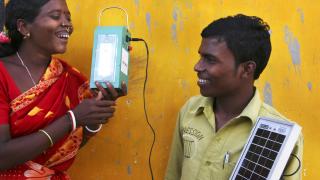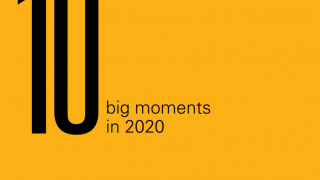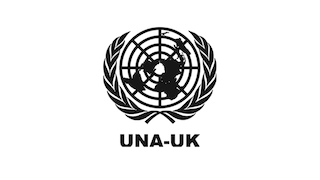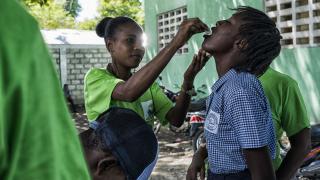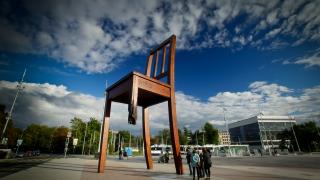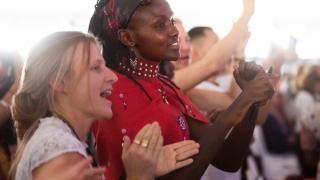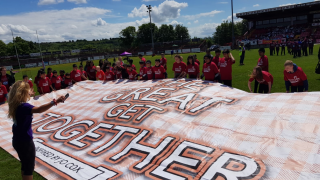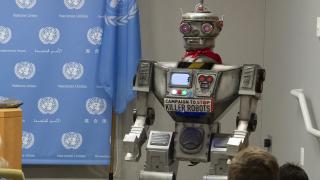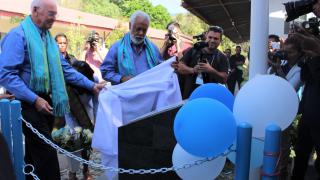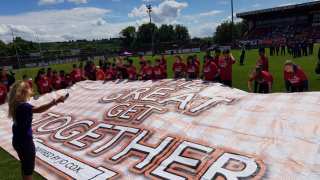
Civility should be the cornerstone of all public life. In global governments, inside our public offices and institutions, indeed in the shared community spaces we all inhabit on a daily basis, our interactions can only be meaningful when conducted with respect.
In recent times, however, these qualities of civility have been dramatically eroded by an increase in abusive and intimidatory language. Populist rhetoric has inflamed tempers and opinions, deepening social rifts, with ‘othering’ becoming commonplace. And it is in this febrile environment that we face a new decade crowded with issues of global resonance: political turbulence; a climate crisis that requires multilateral, innovative solutions; and the ongoing refugee crisis, to name a few.
Now is not a time to retrench to binary positions on the extremes of our public life; on the contrary, if we do not come together and collaborate to overcome these crises we will be rightly judged by future generations. And that is why the ability to overcome difference is so crucial.
Here in the UK, we have been deeply concerned to have seen such a dramatic decline in civility in public discourse, and the consequent impacts on our culture.
The Jo Cox Foundation would not exist if not for an act of extreme political violence. Many readers will remember the tragic murder of Jo Cox MP in 2016 just days before the UK’s Brexit referendum. In a wider European context, Jo’s murder was not an isolated incident. In January 2019, Paweł Adamowicz, Mayor of Gdansk, was murdered, sparking debate across Poland on how hate speech can lead to violence. In June 2019, the German Politician Walter Lübcke was shot dead by a right wing extremist.
The Foundation was established by Jo’s friends and family following her death to build a positive legacy for Jo, and champion the issues she cared deeply about. We strive to build stronger communities, a better public life and a fairer world, all rooted in Jo’s values of kindness, compassion and tolerance.
Currently the Foundation is at the forefront of a growing movement to counter abuse and intimidation in public life, taking a leadership role in raising awareness of the severity of the issue, and to begin to implement long-lasting measures to bring about behavioural change.
Our politicians, in particular, have a duty to set a positive example through their conduct. Over the course of 2019, we worked with the UK government advisory Committee on Standards in Public Life (CSPL) to create the first ever Joint Standard of Behaviour for all political parties to sign up to.
The Standard is a pioneering piece of work - a shared cross-party approach to tackling abuse that sets minimum standards of behaviour all party members (and elected officials) should aspire to, and which acknowledges that our politicians have a duty to help lower the temperature of debate. Parliamentary democracy in the UK has always been robustly combative, however we seem to have lost the ability to disagree agreeably.
We passionately defend freedom of speech; the Joint Standard is not about stymying debate, but about encouraging us to debate better.
This work is needed now more than ever. In the UK the uncertainty of Brexit had contributed to a deep sense of division and disillusionment, with people feeling fatigued and frustrated. Often frustration has led to anger, which in some instances can have extreme consequences. In England and Wales, the number of hate crimes in 2018/2019 more-than doubled to over 103,000 compared to 42,000 in 2012/13. Spikes were seen in the last five years following the Brexit referendum and terrorist attacks in 2017, and 76% of hate crimes were race related.
Online, abusive language and posts flourish in an echo-chamber environment that perversely ‘rewards’ perpetrators for their negative language through the likes and shares of like-minded individuals. In other words, inflammatory language and sentiments are applauded, contributing to a vicious cycle.
The language of aggression has become normalised, with individuals emboldened by their anonymity and the accessibility of their target.
And of particular concern is the fact that women disproportionately bear the burden of abuse: a study by Amnesty International found that in 2017 alone, 1.1 million abusive tweets were received by women, equating to one every 30 seconds.
The consequences of intimidation and abuse are severe. On a micro level, individuals suffer mental health impacts including anxiety and depression, brought on by a very real fear for their personal safety. On the macro level, the abuse we are witnessing is a threat to our very democracy: MPs are changing the way they vote in order to prevent aggression, and young people increasingly cite the fear of abuse in public life as a direct barrier to entering public careers.
These issues go to the very heart of what sort of a democracy we want to be. And now is the time make a critical intervention. To turn away from inflammatory, divisive language, and embrace a culture of compassion.
In doing so, we will work to protect our democracy and create spaces for healthy dialogue and debate. Only in doing this can we overcome this moment of crisis and emerge stronger, more tolerant, and more understanding of one another’s differences.
All of us should stand by Jo Cox’s words from her maiden speech to Parliament in 2015: “We are far more united and have more in common than that which divides us.”
Photo: The Great Get Together at the Fox’s Stadium in Batley © Jo Cox Foundation


